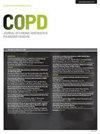饮食甜菜根汁 - 对慢性阻塞性肺病患者的影响:综述
IF 3.1
3区 医学
Q1 Medicine
International Journal of Chronic Obstructive Pulmonary Disease
Pub Date : 2024-07-29
DOI:10.2147/copd.s473397
引用次数: 0
摘要
摘要:慢性阻塞性肺病(COPD)发病率和死亡率都很高,对人类健康和经济造成了严重损失。寻找有效治疗慢性阻塞性肺病的生物活性成分已成为研究的焦点。甜菜根汁易于获取且成本效益高,因其能够提高运动能力以及对高血压的预防和治疗作用而备受关注。甜菜根汁是膳食硝酸盐的丰富来源,可通过硝酸盐-亚硝酸盐-一氧化氮途径调节生理过程,发挥多种有益作用,如抗高血压、支气管扩张、抗炎、抗氧化、降血糖和降血脂作用。本文综述了甜菜根汁对慢性阻塞性肺病影响的现有研究,总结了甜菜根汁在增强慢性阻塞性肺病患者的运动能力、降低血压、改善血管功能和提高睡眠质量方面的潜力。该综述可为甜菜根汁在改善慢性阻塞性肺疾病症状、预防病情恶化和相关合并症方面的前瞻性应用提供参考。 关键词:慢性阻塞性肺疾病;甜菜根;硝酸盐;一氧化氮;运动;血管功能本文章由计算机程序翻译,如有差异,请以英文原文为准。
Dietary Beetroot Juice – Effects in Patients with COPD: A Review
Abstract: Chronic Obstructive Pulmonary Disease (COPD) exerts a severe toll on human health and the economy, with high prevalence and mortality rates. The search for bioactive components effective in the treatment of COPD has become a focal point of research. Beetroot juice, readily accessible and cost-effective, is noted for its ability to enhance athletic performance and for its preventive and therapeutic impact on hypertension. Beetroot juice is a rich source of dietary nitrates and modulates physiological processes via the nitrate-nitrite- nitric oxide pathway, exerting multiple beneficial effects such as antihypertensive, bronchodilatory, anti-inflammatory, antioxidant, hypoglycemic, and lipid-lowering actions. This paper provides a review of the existing research on the effects of beetroot juice on COPD, summarizing its potential in enhancing exercise capacity, lowering blood pressure, improving vascular function, and ameliorating sleep quality among patients with COPD. The review serves as a reference for the prospective use of beetroot juice in the symptomatic improvement of COPD, as well as in the prevention of exacerbations and associated comorbidities.
Keywords: chronic obstructive pulmonary disease, beetroot, nitrates, nitric oxide, exercise, vascular function
Keywords: chronic obstructive pulmonary disease, beetroot, nitrates, nitric oxide, exercise, vascular function
求助全文
通过发布文献求助,成功后即可免费获取论文全文。
去求助
来源期刊

International Journal of Chronic Obstructive Pulmonary Disease
RESPIRATORY SYSTEM-
CiteScore
5.10
自引率
10.70%
发文量
372
审稿时长
16 weeks
期刊介绍:
An international, peer-reviewed journal of therapeutics and pharmacology focusing on concise rapid reporting of clinical studies and reviews in COPD. Special focus will be given to the pathophysiological processes underlying the disease, intervention programs, patient focused education, and self management protocols. This journal is directed at specialists and healthcare professionals
 求助内容:
求助内容: 应助结果提醒方式:
应助结果提醒方式:


